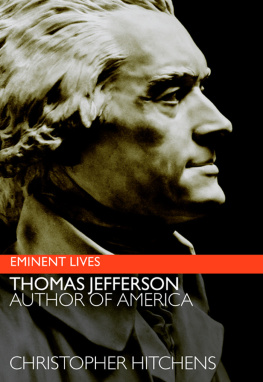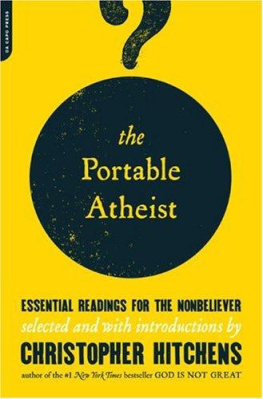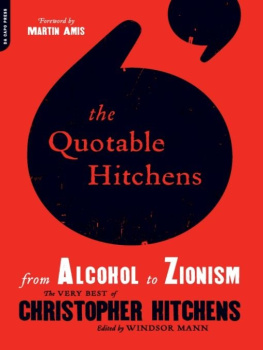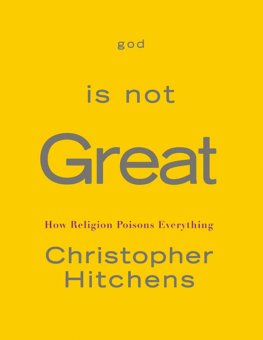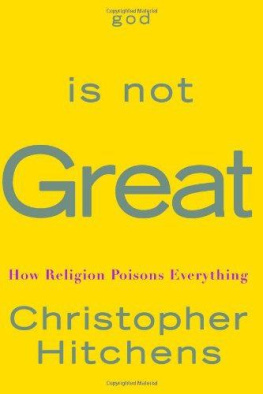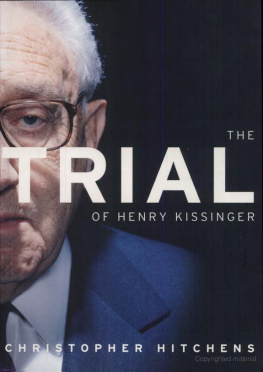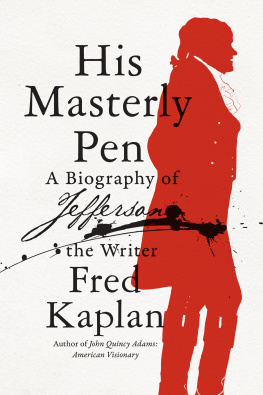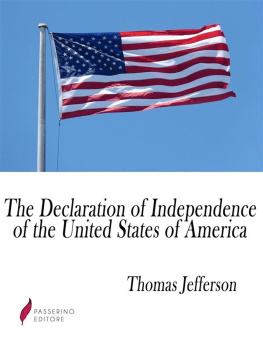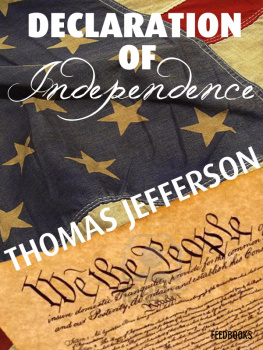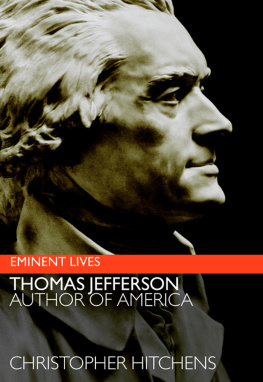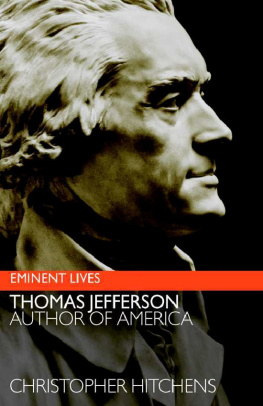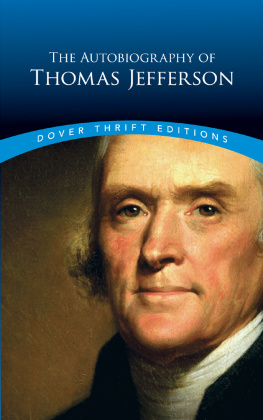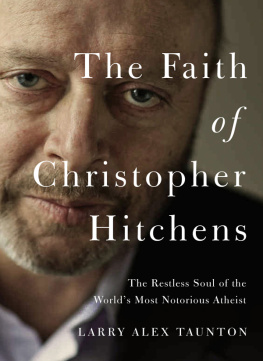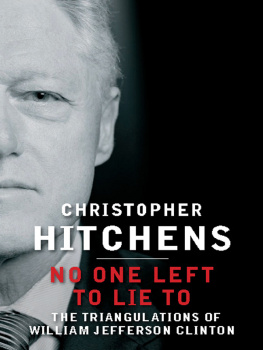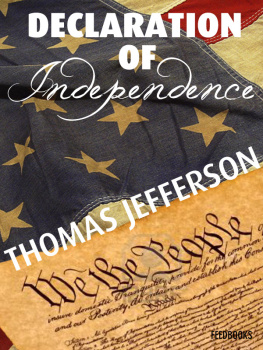Eminent Lives, brief biographies by distinguished authors on canonical figures, joins a long tradition in this lively form, from Plutarchs Lives to Vasaris Lives of the Painters, Dr. Johnsons Lives of the Poets to Lytton Stracheys Eminent Victorians . Pairing great subjects with writers known for their strong sensibilities and sharp, lively points of view, the Eminent Lives are ideal introductions designed to appeal to the general reader, the student, and the scholar. To preserve a becoming brevity which excludes everything that is redundant and nothing that is significant, wrote Strachey: That, surely, is the first duty of the biographer.
M Y PRINCIPAL THANKS are due to the late William Appleton Coolidge of Topsfield, Massachusetts. A direct descendant of Ellen Wayles Coolidge, Thomas Jeffersons granddaughter by Thomas Mann and Martha Jefferson Randolph, he endowed the Atlantic Crossing scholarship at Balliol College, Oxford, which first brought me to these United States in 1970 and which makes me, I suppose, an indirect beneficiary of the peculiar Monticello system.
In January and February of 2004, I was invited to give four lectures and two seminars on Thomas Jefferson at the James Madison College of Michigan State University. The LeFrak Forum and Symposium on Science, Reason, and Modern Democracy provided me with an environment that was at once welcoming and intimidating, and I want very warmly to thank its directors, Arthur Melzer, Jerry Weinberger, and Richard Zinman, for giving me the opportunity of testing my opinions and conclusions against those of superior mind and experience.
It was a fair wind that brought me, some years ago, into contact with Professor Annette Gordon Reed of New York University. Her pursuit of truth in the study of Jefferson is a model of historical objectivity, forensic scruple, and moral sense.
To have decided to pass a certain time immersed either in Jeffersons work or in works about Jefferson is as impossible to regret as it is near impossible to undertake. No single person can now claim to have the entire store of existing knowledge. Everybody concerned must, of course, dip their flags to Julian Boyd, editor of the still-expanding twenty-seven-volume edition of The Papers of Thomas Jefferson prepared for the press at Princeton University, and to Dumas Malones six-volume biography Jefferson and His Time . It is an honor, even when it is not a pleasure, to register disagreement with the second of these. The finest, and the best written, of the more condensed Jefferson biographies is Merrill Petersons, succeeded, as I am sure he would himself admit, by the work of R. B. Bernstein.
Gore Vidals Burr is the best fictional re-creation of the period and forms a keystone in the grand historical-novelistic architecture that is already Mr. Vidals memorial. Conor Cruise OBriens The Long Affair is the most eloquent of the anti-Jeffersonian nonfictions, followed by the work of Albert Jay Nock. John Chester Millers The Wolf by the Ears was for me the most various and illuminating account of the slavery question. On the much-neglected subject of the Barbary war, I found myself gratefully dependent upon Jeffersons War , by Joseph Whelan, and upon To the Shores of Tripoli , by A. B. C. Whipple, upon Evan Thomass John Paul Jones , and even more dependent on Linda Colleys Captives , which reminded me once again that much of the Jeffersonian story is to be found in books that are ostensibly concerned with other subjects. This would also be true of Undaunted Courage , Stephen Ambroses account of the Lewis and Clark expedition, of John Keanes exceptional biography of Thomas Paine, of Ron Chernows exemplary life of Alexander Hamilton, of Gordon S. Woods The Radicalism of the American Revolution , Bernard Bailyns Ideological Origins of the American Revolution , and of Theodore Drapers astonishingly original account of the American Revolution, A Struggle for Power , which replaces that emphasis on radicalism in another way. Those who study Jefferson must also study Edmund Burke, an obvious admission which again puts me in the debt of Conor Cruise OBrien for his book The Great Melody and of David Bromwich for his meticulous editing of Burkes writings On Empire, Liberty, and Reform .
Jeffersons Children: The Story of One American Family , by Shannon Lanier and Jane Feldman, is one of the most striking pieces of Americana ever published. It assembles all the living descendants of Thomas Jefferson and Sally Hemings, and prints their photographs as well as their narratives. The book carries an introduction by Lucian K. Truscott IV, an authorized direct descendant of Jeffersonhis fifth great-grandsonwhose decency and honesty helped bring about this reunion, and who thereby helped refute his ancestors sorry belief that such love, coexistence, and mutual esteem would never be possible. Mutato nomine, et de te fabula narratur.
To list more sources might be to run the risk of boasting rather than acknowledging. I have learned in the course of this undertaking that anyone who writes about America is writing about Thomas Jefferson in one way or another, and soas with the magnificent Jefferson Room in the Library of Congress, where I have spent so many absorbing days in the last quarter-centuryI am tempted to annex, with all their ambivalence, the incised lines that commemorate Sir Christopher Wren at St. Pauls: Reader, if you seek his monument, look around you.
T O BEGIN, THEN, at the conclusion. On June 24, 1826, Thomas Jefferson wrote his last letter. Addressed from his Virginia home, Monticello, it was sent in response to an invitation from Roger C. Weightman, the chairman of a Washington committee to celebrate the then-impending fiftieth anniversary of the Declaration of Independence. Jefferson proffered regrets that his fast-declining health would prevent him from making the journey to the capital. He went on to elaborate this regret in the following manner:
I should, indeed, with peculiar delight, have met and exchanged there congratulations personally with the small band, the remnant of that host of worthies who joined with us on that day, in the bold and doubtful election we were to make for our country, between submission or the sword; and to have enjoyed with them the consolatory fact, that our fellow citizens, after half a century of experience and prosperity, continue to approve the choice we made. May it be to the world, what I believe it will be (to some parts sooner, to others later, but finally to all), the signal of arousing men to burst the chains under which monkish ignorance and superstition had persuaded them to bind themselves, and to assume the blessings and security of self-government. That form which we have substituted, restores the free right to the unbounded exercise of reason and freedom of opinion. All eyes are opened, or opening, to the rights of man. The general spread of the light of science has already laid open to every view the palpable truth, that the mass of mankind has not been born with saddles on their backs, nor a favored few booted and spurred, ready to ride them legitimately, by the grace of God. These are grounds of hope for others. For ourselves, let the annual return of this day forever refresh our recollections of these rights, and an undiminished devotion to them.

